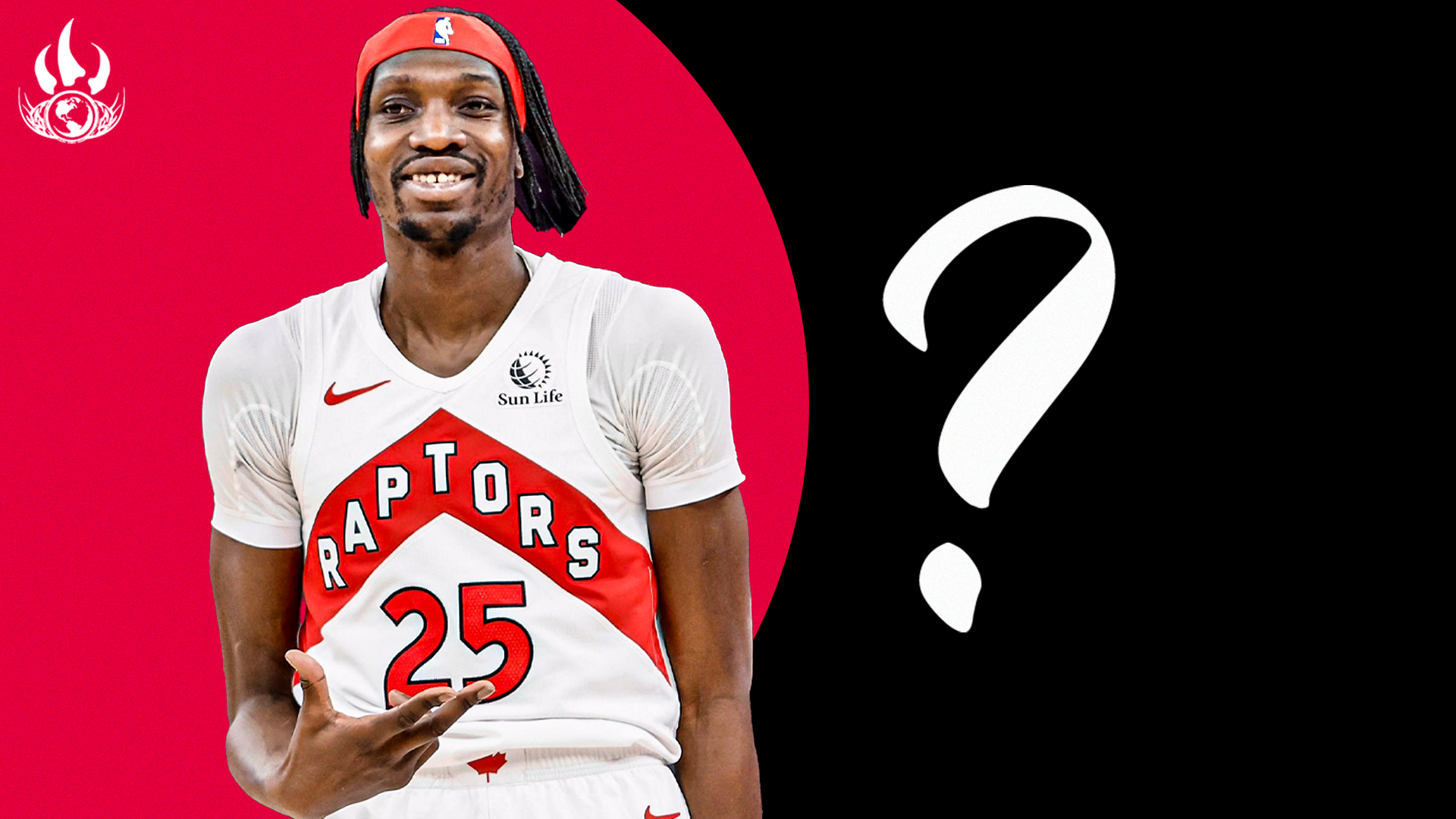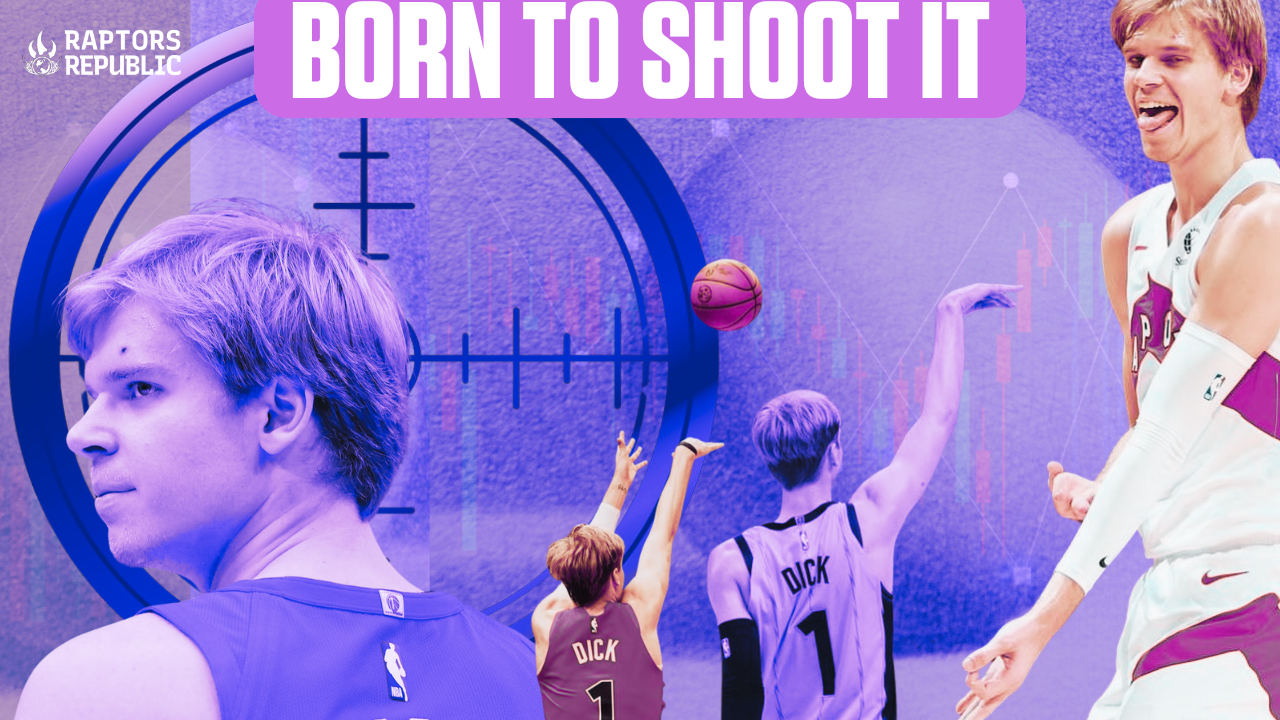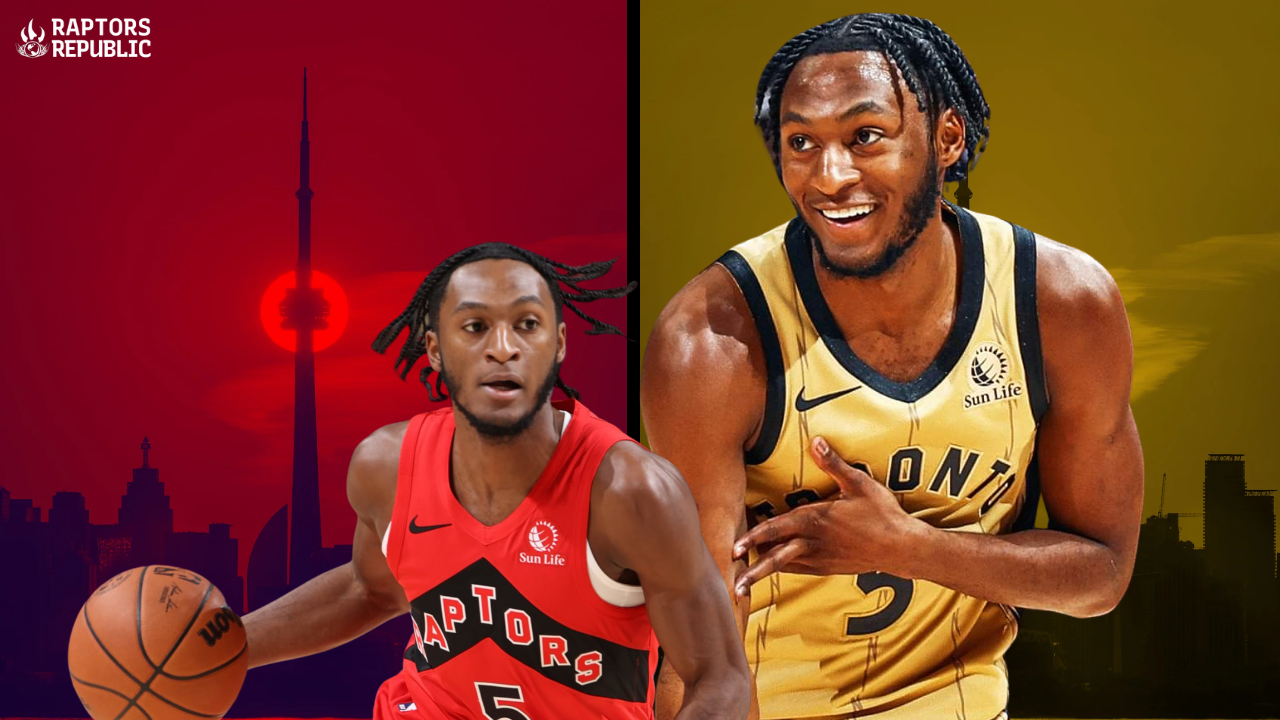The following is part of Raptors Republic’s series of pieces reviewing the season for the Toronto Raptors. You can find all the pieces in the series here.
The best toy my son ever owned (so far) was a pink helium balloon we, I think, stole from another child’s party. He was in his wagon with me, out walking the dog, when a pink helium balloon floated into the road from someone’s house. We were on the other side of the street watching it. My son said, “look look!” over and over. Then a bus came and almost hit it, making it float the wrong direction. We watched it sail away. A car came and floated it back towards us. Over time, walking down the entire length of the street, it wafted closer and closer until it landed in my son’s wagon. He kept it.
We played with it ferociously for that day, releasing it on the ground, letting it float up to the ceiling. He jumped on it. He hugged it. He ate meals with it. It ran out of helium that night (maybe the dog had something to do with that), so it was in the garbage before my son awoke. He has never asked about it again. The pink helium balloon was too pure for this world, too fun, but forgotten and discarded long before its time.
Chris Boucher was the Toronto Raptors’ pink helium balloon this season.
He has long been the bellwether for these Toronto Raptors, the indicator of success. He doesn’t drive winning, like the canary doesn’t change the air in the mines, but he sure lets you know when it’s up or down. He catalyzes the reaction, doesn’t cause it. When Toronto’s been good, Boucher has been thriving. In a successful environment, with roles and hierarchy and talent and buy-in, Boucher has been a hugely successful role player. His running and cutting and rebounding and dunking and defending and running and falling and running and shot-blocking win possessions.
And somehow, in 2023-24, Boucher remained a valuable contributor. Quietly, very quietly, one of the most valuable contributors. First of all, and this is burying the lede for Boucher: He won his minutes. When Boucher was on the court, Toronto played like a 48-win team. They won, uhh, 25. He led the team in on-off differential. I mean, shit, he was ninth in the whole league in on-off differential, just ahead of Giannis Antetokounmpo and Luka Doncic.
And yet. And yet! He played only 705 minutes, his lowest total since his sophomore season in 2018-19 when he was on a two-way contract. Part of that was injury. And part of that was because the Raptors didn’t want to play him because he was … too good? A known quantity? All of the above?
Which makes understanding his season very difficult.
That same lack of comprehensibility creeps into the minutiae of his season. Boucher didn’t play in the season opener and then played 16 minutes in the second game. He played fantastically, making virtually every shot he took, drawing tons of free throws with his frenetic rim attacks, rebounding well, and winning his minutes by 22 points. Toronto lost by one. He played even less in Game 3.
And the season sort of went on like that. He had some louder games, splashing a few triples against the Warriors, blocking some shots against the Wizards. But he never really had a statement performance. He played 20 minutes or more in only six games. Generally he was press-ganged into those added minutes by virtue of injuries to teammates, rather than as a reward for his own play.
Still, Boucher performed. He was one of Toronto’s highest-efficiency on-ball screeners, behind only Pascal Siakam and RJ Barrett in points per chance among players with at least 100 picks set. He was fourth in points per shot attempt, behind only Jakob Poeltl, Kelly Olynyk, and RJ Barrett. He led the team in free throw rate. His defense was good, whether defending picks (either the handler or the screener), in space on the ball, or as the helper in the paint.
There were some small quibbles: He never aced Darko Rajakovic’s pass- and decision-heavy scheme, and Boucher turned in the highest turnover rate of his career in trying to pigeonhole possessions in directions that weren’t natural, at times. (For that reason, probably more than any other, Boucher didn’t have a shot at the Thad Young vet role.) His block rate was the lowest of his career, and his 3-point rate was the highest (while he shot his career average of 33 percent from deep, nothing to write home about. But Toronto lacked competent, NBA-level players who tried hard and followed the scheme last year. Boucher was one of the few. He may not have been the perfect fit for Toronto, but he was a boon. One that the team too rarely opted to actually employ.
And then, of course, when Toronto didn’t have anyone other than Boucher, and finally started giving him minutes, it all fell apart. Boucher’s likely best game of the season was also his last. The Raptors were missing virtually the entire rotation, and Boucher came off the bench against the Portland Trail Blazers on March 9 to great effect. His hustle was incontrovertible, as he chased rebounds and blocks and generally shocked his teammates into added effort. He tipped in a rebound with moments left in the game to tie it in regulation. (They lost in overtime.) But he was trying so hard that he took a terrible fall and partially tore his MCL. It ended his season.
At this point, Boucher is who he is. That is likely the reason Toronto played him so little, or one of them. He is 31 years old and in all probability not adding too much to his game. He can still be very, very effective, but he needs the right context to catalyze his own performance. Spacing, hierarchy, and a simplified decision-making chain. Toronto probably can’t offer that, and even if it can, Rajakovic may well not want to play Boucher too much going forward. For the same reasons he didn’t play Boucher this year: let the young kids have a kick at the can, see what they can become. Boucher is what he is. And him helping Toronto win games probably wasn’t a good thing anyway, not when the team didn’t have a reason to invest in his development. (I disagree with that choice, by the way. I think a team having positive infrastructure on the court helps everyone develop, and Boucher playing 8 extra minutes a game wasn’t going to make the Raptors win 10 extra games or anything like that. But the choice is what it is.)
Realistically, it would probably be best for Boucher to play on another NBA team going forward. Best for Toronto, if the team’s relative indifference in playing him tells us anything. And best for him, too. He is too good a player to be sitting on the bench doing nothing while he can help more than those playing ahead of him. He should be on an excellent team, one that prioritizes winning over draft picks, over developing its youngsters. If Boucher played 15 minutes a game off the bench for a contender, say the Boston Celtics, or Milwaukee Bucks, or Los Angeles Clippers, he would reinvigorate his career. He deserves that. A 2021 Bobby Portis run is in Boucher’s cards.
If this was Boucher’s last season with the Raptors, it would stand as a fitting epitaph. He played well, and uniquely in his own way, despite never getting the opportunity he deserved. He had big moments, but ultimately spent most of the season on the bench. And yet, whenever he had a moment on the court, he ran like his life depended on it. He was too pure for the Raptors, too fun, and forgotten and discarded before his time.



